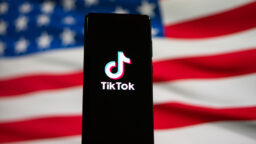Remember the pressure group co-founded by the likes of Google and Pandora to drive down royalties paid to songwriters and artists?
MIC Coalition cropped up in April with a mission, amongst other things, to stop publishers winning the right to negotiate digital performance revenues directly with digital services in the US.
Its most controversial stated aim was to drive down money paid to artists and labels by the likes of Pandora. New rates are due to be set by the US Copyright Royalty Board later this year.
In addition, it wants to block attempts to get artists and labels paid when their music is played on US terrestrial radio.
MIC says: “If those rates are too high, Internet radio streaming could become unsustainable and those services could be driven out of business. As a result consumers and businesses that play music would have fewer choices in the marketplace.”
Well, now it’s suffered something of a major blow: Amazon‘s out.
The giant retailer, founded by Jeff Bezos (pictured), has quit the pressure group in a move that has unsurprisingly been applauded by those fighting on the other side of the battlefield.
The MusicFIRST group is now petitioning US public radio company NPR to withdraw from MIC.
“We applaud Amazon for withdrawing from the anti-artist MIC Coalition,” said musicFIRST Executive Director Ted Kalo. “We do not expect Amazon to be the last to question the Coalition’s true agenda.
“We call on all members of the MIC Coalition who do not share the agenda of trying to cut pay to music creators to follow suit.
“We wonder why, for example, National Public Radio, who artists have worked so closely with over the years, would be involved in a Coalition apparently so laser-focused on cutting artists’ pay?
“Amazon raises important issues and we welcome a constructive dialogue that can benefit everyone who loves music.
“Music services and music creators can and should work together as partners.”
Billboard spoke to Amazon’s VP of digital music, Steve Boom, who said: “When we joined the coalition we had a particular agenda topic that we were interested in, and that was transparency… What has become clear to us since MIC went public is that part of the agenda – transparency – is getting lost in the wilder noise surrounding rate-setting.”
Straight from the horse’s mouth: MIC might claim to be fighting laws that “stifle innovation to the detriment of consumers and artists”, but in reality, its No.1 mission is to make music even cheaper.
Amazon’s priority was to encourage a workable rights database that would have allowed it to more easily license music publishers and their songwriters, said Boom.
Despite not launching with a license from Universal, Amazon’s Prime Music service is celebrating its first anniversary in the US by announcing that its users have doubled in the past nine months to ‘several million’ consumers.
It claims to have more than 1,000 playlists, while playback hours have tripled since September 2014.
Steve Boom, VP of digital music for Amazon, said: “We’re excited to celebrate the first year of Prime Music.
“Whether it’s continuous listening on Prime Stations, discovering Prime Playlists for every mood or choosing albums from both established and up-and-coming artists, our Prime members love having music as a part of their membership.
“And we’re just getting started—we are always listening to our Prime members and will continue to enhance Prime Music to make it the best music streaming service for them.”
Music Business Worldwide





